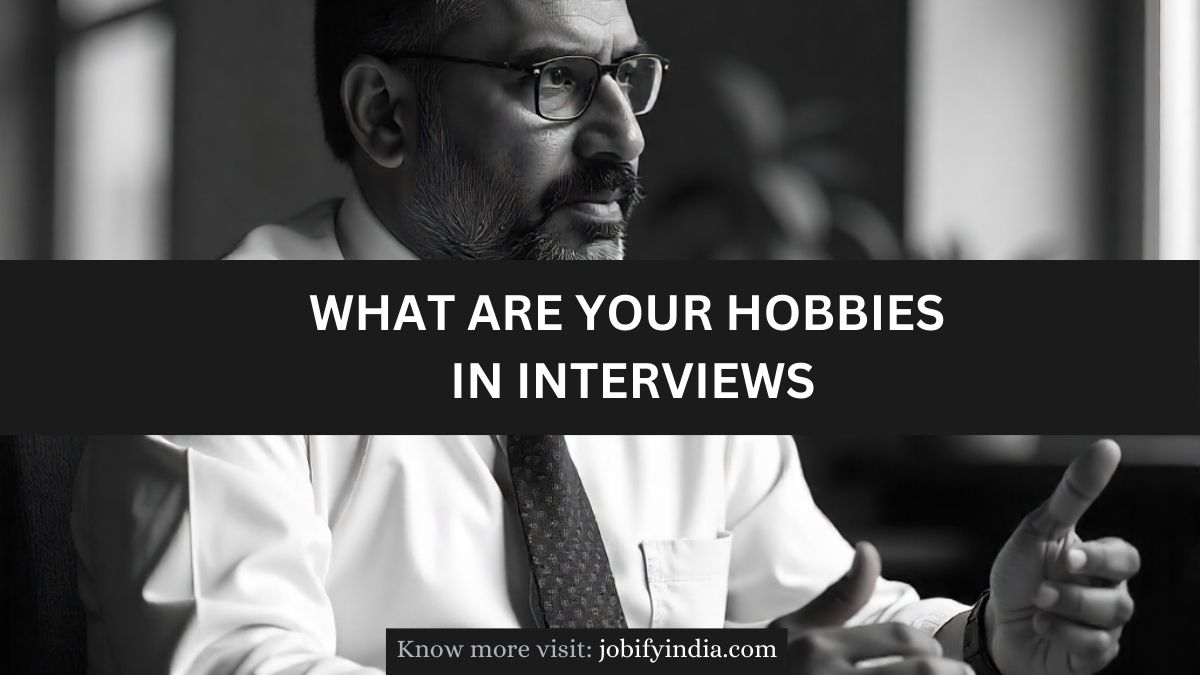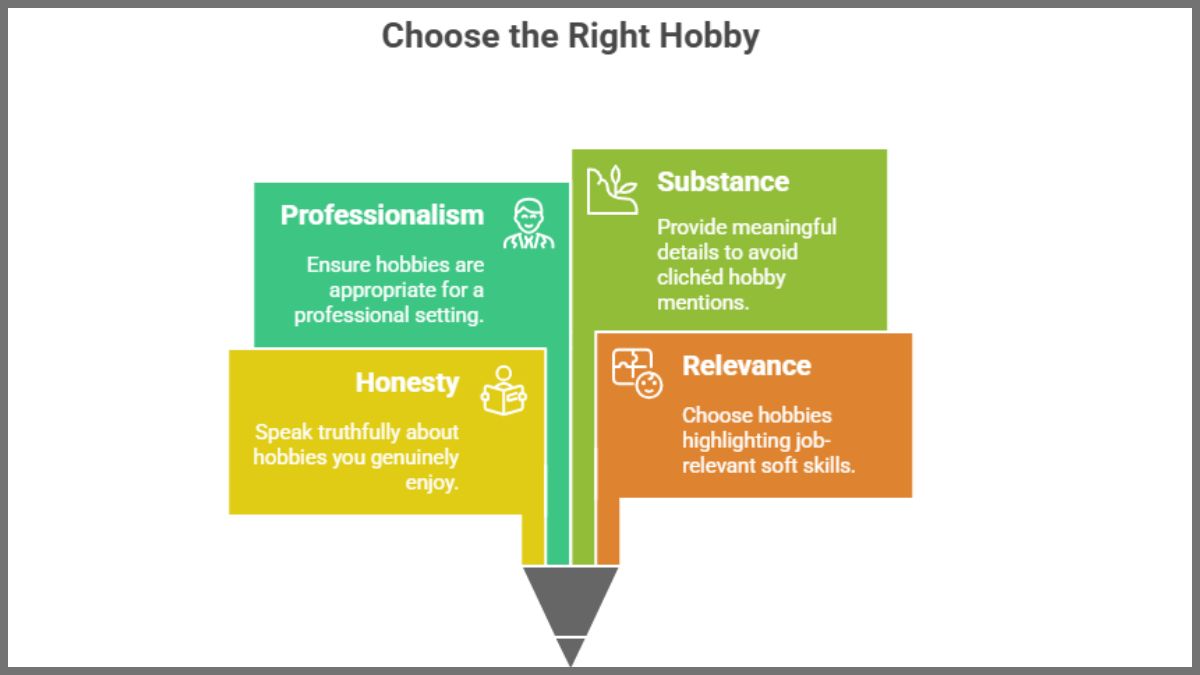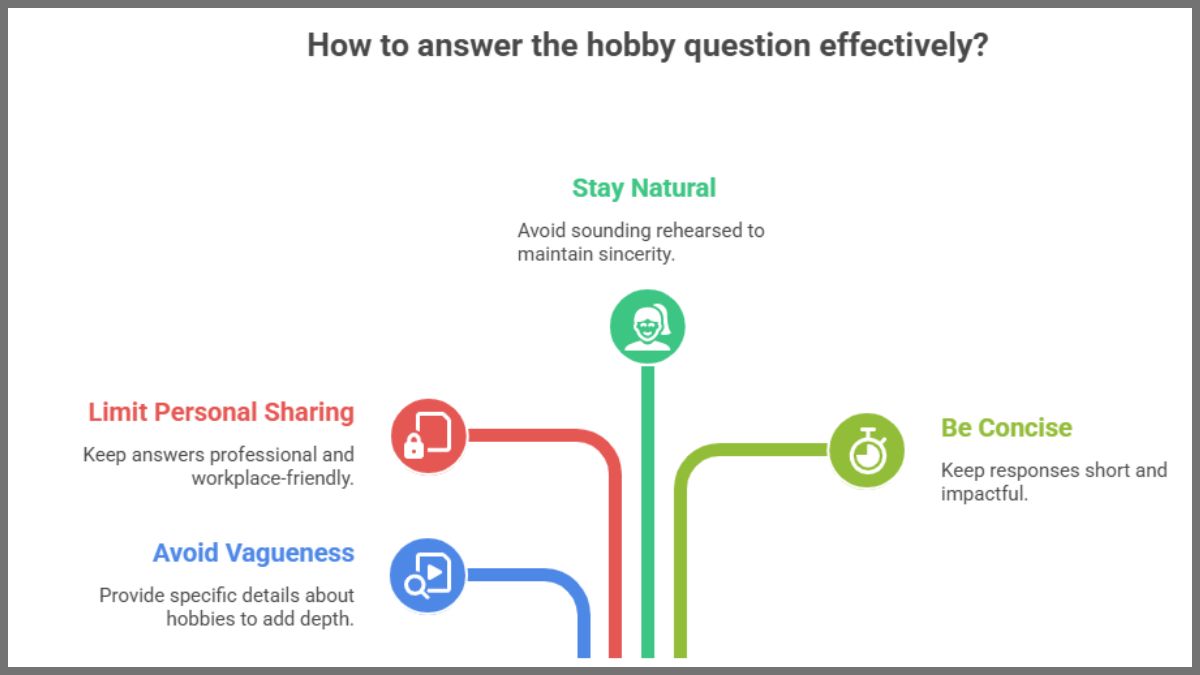When you walk into a job interview, you’re likely prepared to talk about your skills, experience, and achievements. But then, the hiring manager throws you a curveball: “So, what are your hobbies?”
At first, it may seem like small talk, but what are your hobbies in interviews is a question with purpose. Interviewers ask it to learn more about the person behind the resume. They want to see if you’re well-rounded, what drives you outside of work, and whether your interests align with the company’s culture. Understanding the objectives of an interview makes it clear why hobbies aren’t just small talk but a window into your personality and potential fit for the role.
How to Choose the Right Hobbies to Talk About
Now, you might be wondering, “Do I just list out all my hobbies?” Not necessarily. The key is to choose hobbies that are relevant, genuine, and add value to your overall image as a candidate.
Here are a few tips to help you decide what to mention:
- Be honest: Always speak about hobbies you genuinely enjoy. If you say you love reading but can’t name a recent book, it might hurt your credibility.
- Make it relevant: If possible, pick hobbies that highlight soft skills or traits valuable in the job you’re applying for. For example, team sports show collaboration, while playing chess points to strategic thinking.
- Keep it professional: While your weekend karaoke sessions might be fun, some personal hobbies can feel out of place in a work setting. Use your judgment to keep things appropriate.
- Avoid cliches without substance: Many people say they “love to travel,” but without a story or detail, it could sound vague. If you do mention something common, back it up with a meaningful experience.
Examples of Good Hobbies to Mention in Interviews
Let’s take a deeper look at some hobbies that work well in interviews and what they say about you as a candidate.
1. Reading
If reading is your thing, be ready to talk about the genre you enjoy and maybe your favorite authors. Reading can show continuous learning, curiosity, and good communication skills.
Example:
“I enjoy reading, especially biographies and self-development books. I recently finished Michelle Obama’s Becoming, and it inspired me to reflect on resilience and growth.”
2. Playing Sports or Outdoor Activities
Team sports like cricket, football, or even hiking in your free time can say a lot about your energy, perseverance, and teamwork skills.
Example:
“I play football every weekend with a community team. It helps me stay active and teaches me how important teamwork and strategy are in achieving common goals.”
3. Volunteering or Social Work
Volunteering shows that you are compassionate, responsible, and community-driven. These are valuable traits in any role.
Example:
“In my spare time, I teach basic computer skills at a local NGO. It keeps me connected to my community and improves my own communication and teaching abilities.”
4. Creative Hobbies
Things like painting, writing, baking, or photography can showcase creativity, patience, and attention to detail.
Example:
“I enjoy baking and often try new recipes on weekends. It’s a great stress reliever and helps me enhance my problem-solving skills—especially when things don’t go as planned!”
5. Learning New Skills
If you like learning languages, coding, or trying online courses, it highlights your eagerness to grow and adapt—qualities that employers appreciate.
Example:
“During the pandemic, I started learning Spanish using an app. I set small goals and now I can hold simple conversations. It’s taught me discipline and focus.”
How to Structure Your Answer
A great answer to the “What are your hobbies?” interview question usually follows a simple structure:
- Start with the hobby: Mention what you do.
- Say why you enjoy it: Share what it means to you or why it interests you.
- Connect it to a skill or strength: Explain how it reflects your personality or supports your professional life.
Let’s look at a well-structured example:
“One of my hobbies is gardening. I started it during the lockdown, and it’s become a calming part of my day. It’s taught me patience, planning, and consistency—qualities that I also apply in my work when handling long-term projects.”
See how this answer is honest, personal, and reflects useful work traits? That’s the sweet spot to aim for.
Common Mistakes to Avoid
While it’s a simple question, there are ways to get it wrong. Many of these slip-ups overlap with the broader job interview do’s and don’ts, so keeping both in mind will help you give a stronger, more polished response.
Here’s what to watch out for:
- Being too vague: “I watch movies” or “I like music” doesn’t say much about you. What types? Why those kinds? Add some depth.
- Over-sharing: Avoid getting too personal or talking about hobbies that may be seen as controversial or not workplace-friendly.
- Sounding rehearsed: Keep it natural. If your answer feels scripted, it can come across as insincere.
- Rambling: Stick to one or two hobbies. Keep your response short and impactful.
What If You Don’t Have a “Hobby”?
Not everyone has a list of hobbies ready to go. And that’s okay. Think of activities you do to unwind or improve yourself, even if you don’t consider them traditional hobbies.
For instance, enjoying podcasts, spending time with family, going for walks, or watching documentaries can all count—if explained the right way.
Example:
“I enjoy listening to modern history podcasts. They help me learn new things and offer different perspectives on problem-solving.”
Final Thoughts
When it comes to answering, “What are your hobbies?”, think of it as a chance to show who you are beyond job titles and achievements. The most effective responses are those that are honest, thoughtful, and offer a glimpse into your personality and values.
So before your next interview, take a few minutes to think about what you truly enjoy. Maybe it’s cooking up new recipes, hitting the gym, or diving into a good book. Whatever it is, own it.
After all, your hobbies might just be the reason you land the job.






